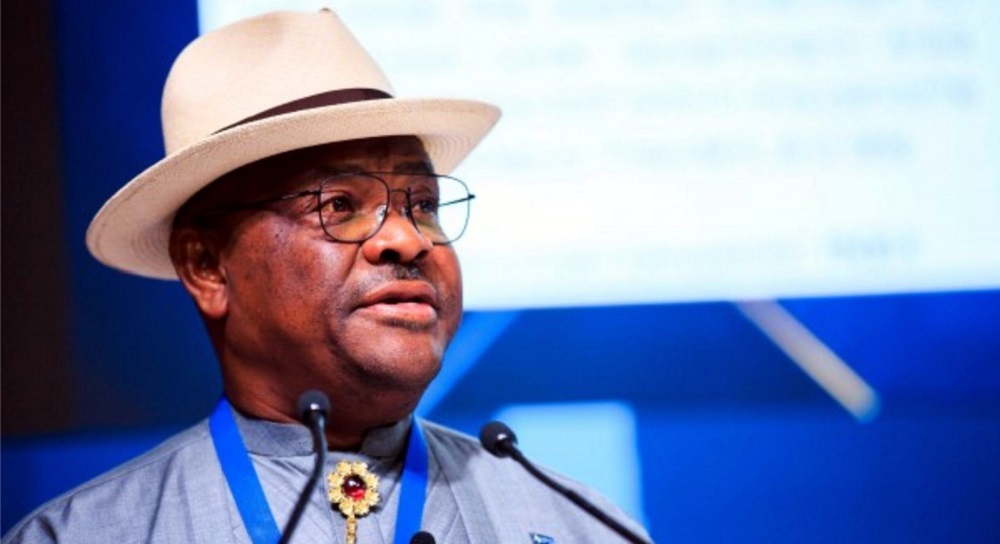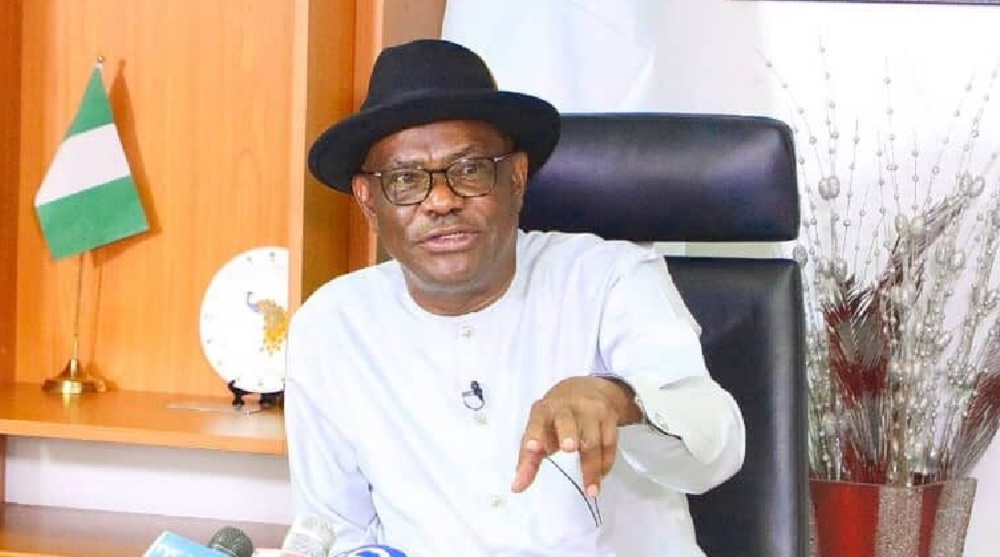News
Power supply: NASG distributed 150 transformers

Governor Abdullahi Sule of Nasarawa State has said that his administration has so far distributed 150 transformers aimed at improving power supply across the state.
This is just as Governor Sule expressed readiness to build another power substation estimated at five hundred million naira, in order to improve electricity supply especially in Lafia, the state capital.
Governor Sule made this known when he met with Regional Manager of the Abuja Electricity Distribution Company (AEDC), Engr. Baro Ahmed, at the Government House on Wednesday.
The meeting, which was at the instance of the Governor, was aimed at addressing the persistent power supply problem, especially in Lafia and environs.
According to the Governor, though it shouldn’t be the business of government to buy transformers, especially that AEDC is the only company responsible for collecting revenue from power consumers, his administration has gone ahead to buy 150 transformers in order that communities in the state could be linked to the national grid.
He showed his readiness to enter an agreement with the management of the AEDC with a view to constructing another power substation in Lafia, estimated to cost five hundred million naira.
The Governor thereafter directed the General Manager of the Nasarawa Electricity Power Agency (NaEPA), Engr. Abubakar Danjuma Ango to arrange a meeting with the management of AEDC in Abuja where modalities for the agreement would be discussed.
Governor Sule said he called the meeting because of the persistent complaints from electricity consumers from across the state, who continously express their dissatisfaction with power supply recently.
He said he wanted to hear from AEDC why power supply especially in Lafia, the Nasarawa State capital has been epileptic.
On realizing that the issue is not even the matter of distribution, with Lafia that used to get 20 megawatts of electricity now only able to get seven megawatts, the Governor blamed the AEDC for lacking a robust communication system to inform their consumers of what is happening.
He added that sometimes the AEDC takes the heat that is not theirs because the company is not communicating for their consumers to get to understand what is happening.
“People of Lafia were supposed to be getting 20 megawatts every day. We are only getting 7 megawatts. You need to create public awareness. The country is not generating enough but that you are having peculiar issues here in Lafia,” he said.
Governor Sule insisted that AEDC should have opened up to the people of Lafia by telling them that four years ago, Lafia needed only 4 megawatts daily but that now it needs 20 megawatts because of the springing up of mini industries.
He explained that his administration has invested huge resources in the area of power and is ready to take necessary steps towards ensuring steady electricity supply in the state, especially in Lafia, the state capital.
He reiterated the readiness of his administration to work with critical stakeholders in the power sector in order to ensure improved power supply to the state and especially Lafia, the state capital.
Also speaking, Secretary to the Government of Nasarawa State, Barrister Mohammed Ubandoma Aliyu, urged officials of the AEDC to proceed with caution when they go out to collect electricity dues, especially that the power supply in the month of February was poor.
The SGNS called on AEDC to consider the prevailing hardship being experienced across the country, and not to charge their customers exorbitantly, particularly that they did not enjoyed steady power supply in this month of February.
Earlier, General Manager, Nasarawa Electricity Power Agency (NaEPA), Engr Abubakar Danjuma Ango, said the meeting was at the instance of Governor Sule, for the officials of the power company to ascertain factors responsible for the poor power supply in the state especially Lafia and its environs.
Responding, Regional Manager of Abuja Electricity Distribution Company (AEDC) Engineer Baro Ahmed, disclosed that presently the country is generating only 4000 megawatts of power, which he said is grossly inadequate.
Engr. Ahmed pointed out that Lafia that used to get 20 megawatts daily now gets only 7 megawatts.
He however explained that Lafia is currently experiencing power supply issues because of peculiar problems associated with overloading of available feeders.
The AEDC regional manager accepted to communicate further on the willingness of the state government to partner the power company with a view to constructing another substation that would serve to decongest the valuable feeders.
On his part, AEDC Lafia Manager, Isa Mohammed, said an additional power substation would greatly improve power supply especially in Lafia the state capital.
He commended Governor Sule for his efforts to attract investors into the state, which has brought improved revenue to the AEDC.
“Today, because of the emergence of mini industries, Lafia is needing about 20 megawatts daily,” he said.
He particularly appreciated the Governor for doing a lot to ensure that power is supplied across the state.
“I never new a Governor will come, a cable you buy, transformer you buy. What are we talking about? Your people should appreciate you. You are doing a lot,” the Lafia AEDC Manager said.
News
Po!n, betting sites recorded 162m Nigerian visitors in June – Report

A report by global data and business intelligence platform, StatiSense, has revealed that more than 162 million Nigerians visited porn and betting websites in June 2024.
According to the platform’s most recent data, which lists the top ten websites that Nigerians saw on their mobile devices in June, a sizable percentage of this traffic visited websites with gambling and pornographic content.
A post on StatiSense’s official X page revealed that a variety of search engines, social media apps, and betting platforms were among the most popular websites.
Notably, two pornographic websites, Xvideos and Xnxx, came in second and sixth place respectively with a total of 80.18 million visits.
In addition, Nigerian mobile users visited sporting websites 176.83 million times. Of these, 83.1 million visits were allocated to sports betting sites Sportybet and Bet9ja, which secured third and fourth places on the list.
Google and Facebook were also among the sites that featured prominently in the report.
News
Reps hail Wike, Tamuno over AICL’s improved revenue, infrastructure

Members of the House of Representatives’ Committee on FCT, led by Hon. Aliyu Muktar Betara have applauded the Minister of Federal Capital Territory (FCT), Nyesom Wike over ongoing infrastructural development projects across the nation’s capital city.
The lawmakers who spoke during an interactive session with the Group Managing Director of Abuja Investment Company Limited (AICL), Dr. Maureen Tamuno applauded her ingenuity towards improved revenue generation since her assumption of office.
While presenting her scorecard and strategy adopted in the turnaround of Abuja Investment Company Limited to the Committee, Dr. Tamuno disclosed that AICL only manages the district markets, not the entire markets across the territory.
According to her, Wuse Markets is owned 90 percent by the individuals who bought the shops while AICL owns 10 percent.
“For example, Wuse Market is owned 90 percent by the owners, we own 10 percent. What Abuja Management does for Wuse market is to manage the facility there through the toll taking which they do collect on our behalf and then they manage the facilities, they manage the refuse collections and they also work with the market association.”
News
Tinubu serious in solving economic crisis — Wike

Minister of Federal Capital Territory (FCT), Nyesom Wike on Friday said President Bola Ahmed Tinubu is serious in solving the economic crisis in the country.
Wike gave the assurance during the inspection of the ongoing construction of the 7.3 kilometers Gaba/Tokulo road in Bwari Area Council.
He pleaded with Abuja residents to give the present administration the needed support to deliver the dividends of democracy.
Addressing reporters during the inspection visit, the FCT Minister expressed satisfaction with the speed and quality of work on the road project and assured that it will be adequately funded to ensure its timely completion by December this year.
The Minister who revealed that the project was 40 percent complete, said about 70 percent of the contractual sum has been paid to the contractor by the FCT Administration and expressed confidence in the capacity of the contractor to deliver the project within the agreed schedule.
Wike further disclosed that the Gaba/Tokulo road, when completed, will not only enhance transportation in the rural parts of the FCT, but will also improve food security in the nation’s capital by providing access to the farmlands, as well as access to the markets.
He also stressed the commitment of the FCT Administration to providing infrastructure in the FCT Area Councils, in line with the Renewed Hope Agenda of President Bola Ahmed Tinubu.
Wike said: “So many people have thought that we are only concentrating in the city. Yesterday, we were in Saburi, today we are in Bwari. Tomorrow, we will be in Kuje, so that people will understand that while we are doing in the city, we are also carrying out development in the satellite towns and the rural areas because by the Renewed Hope Agenda, development is not only to be concentrated within the city but also to take to the rural areas in order to improve the economy.
“Here is an agrarian area; without this road, how are they going to move their goods? And this is part of the problems we have in terms of food insecurity. People are talking about shortages of food, but if we don’t have means of transportation, that is also a problem.
“We are trying to solve that problem of transportation for farmers to be able to go and bring whatever they have produced for people to consume or to buy”.
Wike, while thanking the people of Bwari for their support for the government, also reiterated that President Tinubu was committed to addressing the economic problems of the country and called for their continued support.
He said: “We thank the people of Bwari and we want to also let them know that the government of President Tinubu is serious about solving the economic crisis we have. All we urge Nigerians is just to be patient.
-

 News23 hours ago
News23 hours agoNationwide protest: ‘Airport Is Filled Up, Govs, Senators, Reps, Ministers Traveling Abroad’ — Fayose
-

 News15 hours ago
News15 hours agoLP blows hot gives Akpabio 72hrs to declare Senator Onyewuchi’s seat cacant for dumping party for APC
-

 Politics15 hours ago
Politics15 hours agoBreaking! LP crisis takes fresh twist as ‘new’ chairman emergesl
-

 Opinion3 hours ago
Opinion3 hours agoFuel Challenge In Nigeria: Modular refineries to the rescue?
-

 News15 hours ago
News15 hours agoJust in: DSS moves against organisers of protest, freezes bank accounts as group set to file legal action against UBA
-

 News15 hours ago
News15 hours agoSEE Dollar to naira exchange rate today at black market
-

 News3 hours ago
News3 hours agoAraraume mourns Iwuanyanwu, says Nigeria has lost a genuine patriot
-

 News11 hours ago
News11 hours agoFinally, IGP approves hunger protests across Nigeria








